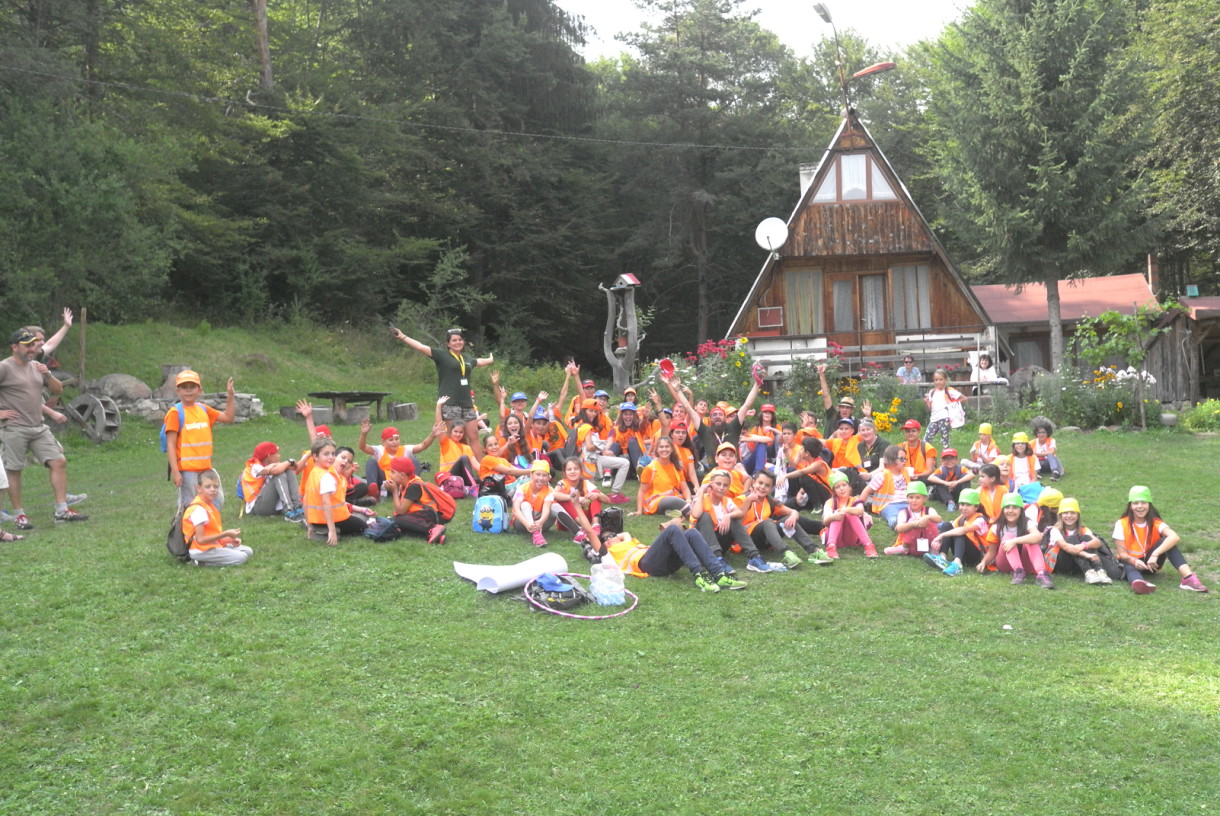Is there a minimum age and what is it? Other additional requirements
Minimum age for children in the mountain summer camp
The child becomes completely independent in his hygienic and personal habits around the age of 6. This is the age at which he can make choices such as what clothes to wear, what routine to follow in his daily life, and to perform all these actions correctly. The mother still plays an important role in his life, but he has already grown up and can cope with the activities without help, even proud of his achievements.
That’s why our recommendation is sign up after this age.
LuckyKids professionals and early preschoolers
Our teachers, animators and medical staff are fully trained to work with preschool children. They know the physiological characteristics of the child’s body in these years, and this is important in a variety of camp activities that require physical activity.
We always consider the smallest. They are in different language groups during the educational process and in different groups for afternoon activities according to their abilities and skills.
We have had cases in which the camp is divided into two streams – from 6 to 8 years and from 9 to 14 years. This is done so that the participants can be equal and not allow inadequately offered activities, which for some will be too easy and boring, and for others – unattainably difficult.
Other additional requirements for the youngest participants
We provide participation of the youngest in the international camp LuckyKids, but we also have additional requirements.
Here are some of them:
- children to be independent and to be able to take care of their personal hygiene, accessories and clothes;
- the children to follow all the rules of the Camp Rules and to comply with the other participants;
- the children to participate in all activities that are naturally consistent with their age and abilities;
- in case of a physical problem or indisposition to inform the managers (teachers, animators, medical person);
- our youngest campers participate in the educational program, created and fully tailored to their cognitive development;
- our youngest campers participate in artistic and recreational activities with the same rights as the largest – everyone has the right to equal expression. They enjoy the respect and mutual assistance of the larger participants;
- the little ones also need to arrange their belongings and clothes. With them, the teacher or animator can support some basic hygiene activities such as taking a shower and the more complex arrangement of the room, but in general the children are given the opportunity to cope on their own;
- Toddlers follow the same regimen as older children, with small differences such as bedtime, which can be withdrawn a little earlier according to their physiological needs;
- each of the young participants has the right to individual care and attention from teachers and animators. For example, in the evening bedtime routine, there are more sensitive kids who grieve for home or parents in the evening, in which case the teacher stays with them, together they talk or read books in order for the child to relax so that he can sleep peacefully;
- when feeding, the amount that the child needs to take is controlled by the present supervisor; very often our little campers want to have breakfast with a cup of chocolate or only with yellow cheese, or only with fried buns; in these cases, the role of the educator is to convince the child that it is necessary to take a variety of food in order to be charged with energy for the long camp day;
- during the project training activity we give them tasks according to the characteristics of their age and abilities, encouraging their interests and talents; after the completion of the project training, they need to clean and tidy the classroom, as well as each participant in the camp;
- An important requirement for the youngest campers is to know at what level is their ability to swim, and then to be tested in order to ensure safety. In our swimming pool we always provide fleets – inflatable belts for hands to support the child above the water surface. We place them whenever we do not know to what extent the child can cope or when we know that he cannot swim;
- it is also important to know that in LuckyKids children’s camp we do not provide afternoon sleep, because then all additional activities take place; this means that the child needs to be in excellent health and in very good physical shape to keep up with the pace of the camp. Often the kids rest in the buses, on the way back to the hotel or are the first to fall asleep in the evening, tired and happy with the adventures of the day;
- virtue training for all – our youngest children receive on an equal footing with the older virtues. They have the same sticker card on which they receive their stickers for a good deed and good behavior. Thus, from an early age we teach them something extremely valuable – to be kind, respectful, tolerant, honest and open, to help each other and to give thanks when they receive help from the older ones.
Sometimes young children are a kind of test of what we have taught our campers, because they are very honest and easily share what the big “batkovtsi and khaki” have done for them!
In conclusion – preschool age is considered suitable for enrollment in our camp, where the child will feel mature, independent and brave, where discoveries and new friends await him!
